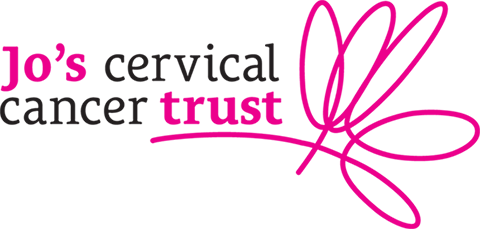Adriana MacNaughton is the London Public Health Coordinator at Jo’s Cervical Cancer Trust. In this blog, she talks about barriers to cervical screening and how education helps patients to make informed decisions.
Before my first cervical screening appointment, I was worried that it would be painful and felt a bit shy about it – and I assumed others probably felt the same. But when I started at Jo’s, I had my eyes opened to the vast amount of other barriers that existed.
It’s so important for professionals to understand just how many barriers there are to attending cervical screening and how to support patients with them.
We researched attitudes to cervical screening in minority ethnic groups in Manchester. My eyes were opened to how their barriers were completely different to mine. Some of the older women hadn’t heard of cervical screening. When we discussed HPV and how it was transmitted through skin-to-skin contact, they said some people in the community felt that it was dirty and linked to promiscuity.
“The stigma was so huge, there was an attitude it was better to die from cervical cancer rather than seek medical advice.”
There can also be real barriers for those who don’t speak English as a first language or at all. I met a woman who was very upset, thinking she’d had a letter telling her she couldn’t have children. In fact, it was a cervical screening invitation that a family member had translated incorrectly. I met another woman who was hearing impaired but didn’t have her sign language interpreter with her at the appointment, so couldn’t explain to the sample taker that she was in pain.
We also know there are barriers because of female genital mutilation (FGM), sexual violence, and much more that can cause understandable worry or fear about intimate examinations.
Results can bring up more issues. Some people think if they have HPV, it means they can’t be close to a partner until their next appointment, which is not true. We hear a lot about HPV misunderstandings that have caused break ups and divided families.
What can you do?
Well, we don’t expect you to know every possible barrier that may be affecting someone coming for cervical screening! But it is important to be aware of what patients may go through to get to that appointment and have a sample taken. Speak to your patients and ask what might make it easier for them.
Be aware patients may not want to disclose everything to you, such as details about their sex life or traumatic experiences – especially in communities where virginity is extremely important. Remember that every eligible person has a right to cervical screening, even if on the surface their risk of cervical cancer is very low. Accept and respect their decision.
Always stress confidentiality in any communication about cervical screening. Some patients tell me they go to sexual health clinics two boroughs away, so no one would recognise them at their family surgery. You know appointments are completely confidential – but it’s really worth reminding patients of that.
Give the patient a chance to ask questions and try to give them plenty of information before and after the test. Something may seem obvious to you, but it probably isn’t to your patients. Don’t forget to explain possible results to them, so they feel prepared.
Finally, do make use of Jo’s. We have loads of information for patients, as well as a confidential Helpline and other services. Some patients might find it easier to open up to an anonymous person or do their own research for all sorts of reasons.
Some of the barriers I’ve mentioned may seem huge and complex. But we know that educating women and people with a cervix means they can make an informed choice about cervical screening. All we want is the best for patients and hopefully, to eliminate cervical cancer.
We have good practice guidance for before, during and after cervical screening. If you want to raise awareness of cervical screening, we have resources you can use, from online information through to downloads and translated videos. You can also signpost patients to our services for extra support.
Categories: cervical screening professionals
